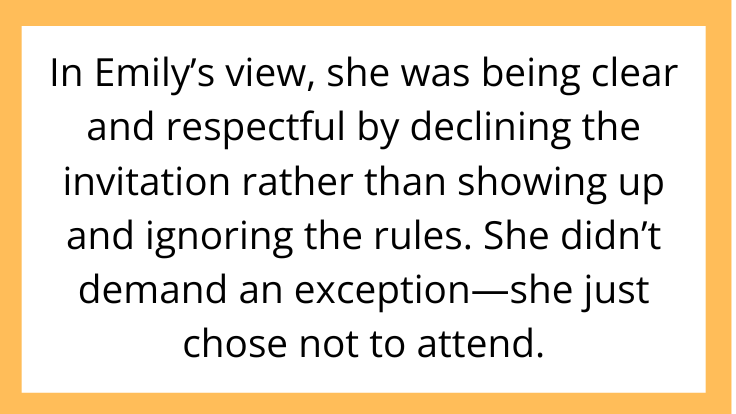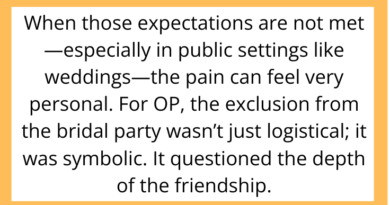AITAH for Refusing to Attend My Sister’s Child-Free Wedding Because I Can’t Bring My Newborn?
When family celebrations clash with personal responsibilities, things can get messy fast. Today’s AITAH scenario comes straight from a heated Reddit post: a new mom caught between her sister’s child-free wedding and the realities of caring for a newborn baby. Let’s dive into this emotional dilemma and explore whether setting boundaries makes her the villain—or simply a parent protecting her child.
The Dilemma: A Wedding Invitation with a Catch
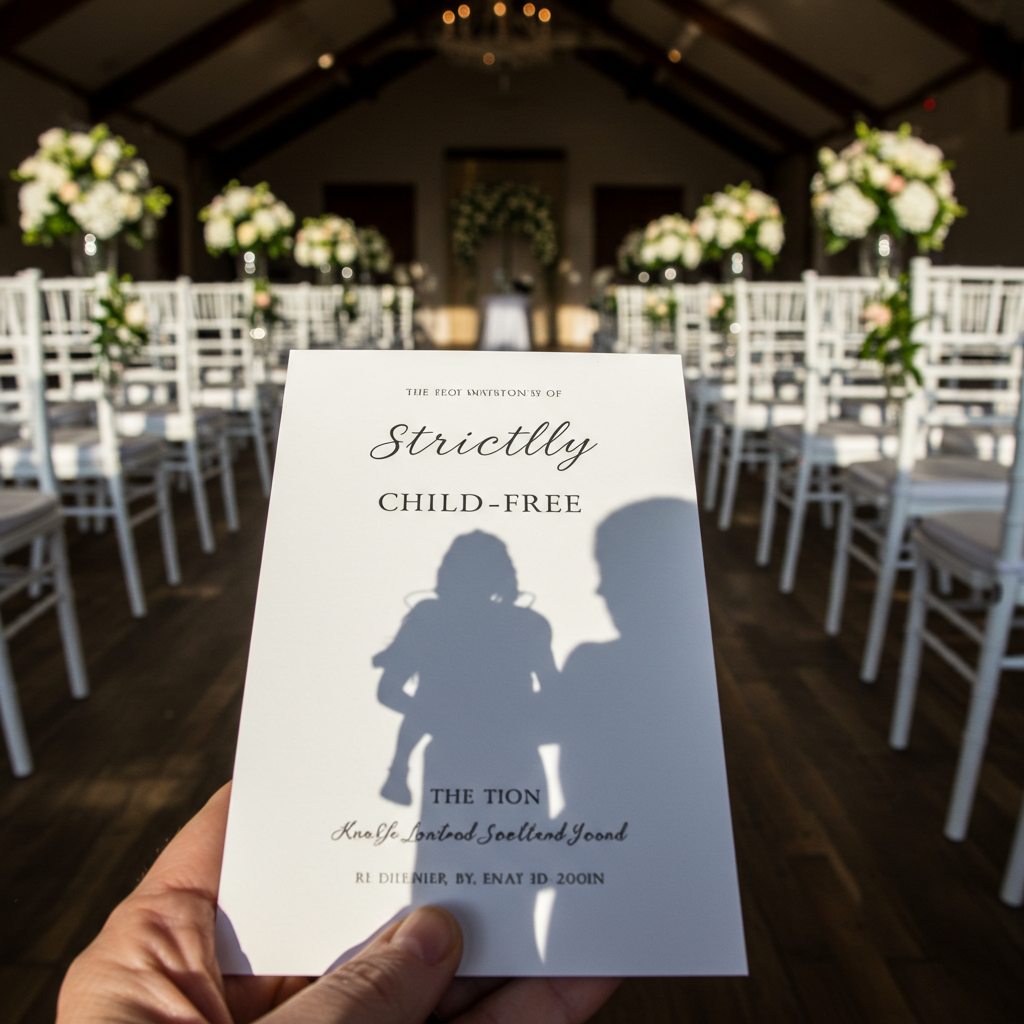
A 27-year-old woman, whom we’ll call Emily, recently shared her story online. Emily gave birth to her first child just six weeks ago. Her sister, Sarah, 30, is getting married in a month and announced her wedding would be strictly child-free. No exceptions.
Emily reached out to explain that she was exclusively breastfeeding and couldn’t be away from her baby for long stretches. She offered to keep the infant in a carrier and step out if the baby cried. Sarah refused, insisting the rules applied to everyone, including immediate family.
Feeling cornered, Emily told Sarah she wouldn’t be able to attend. Sarah erupted, calling Emily selfish for prioritizing her baby over her sister’s big day. Their mother sided with Sarah, accusing Emily of making everything about herself.
Desperate for perspective, Emily asked Reddit: Am I the villain for refusing to attend a child-free wedding when I have a newborn?
The Arguments: Boundaries vs. Expectations
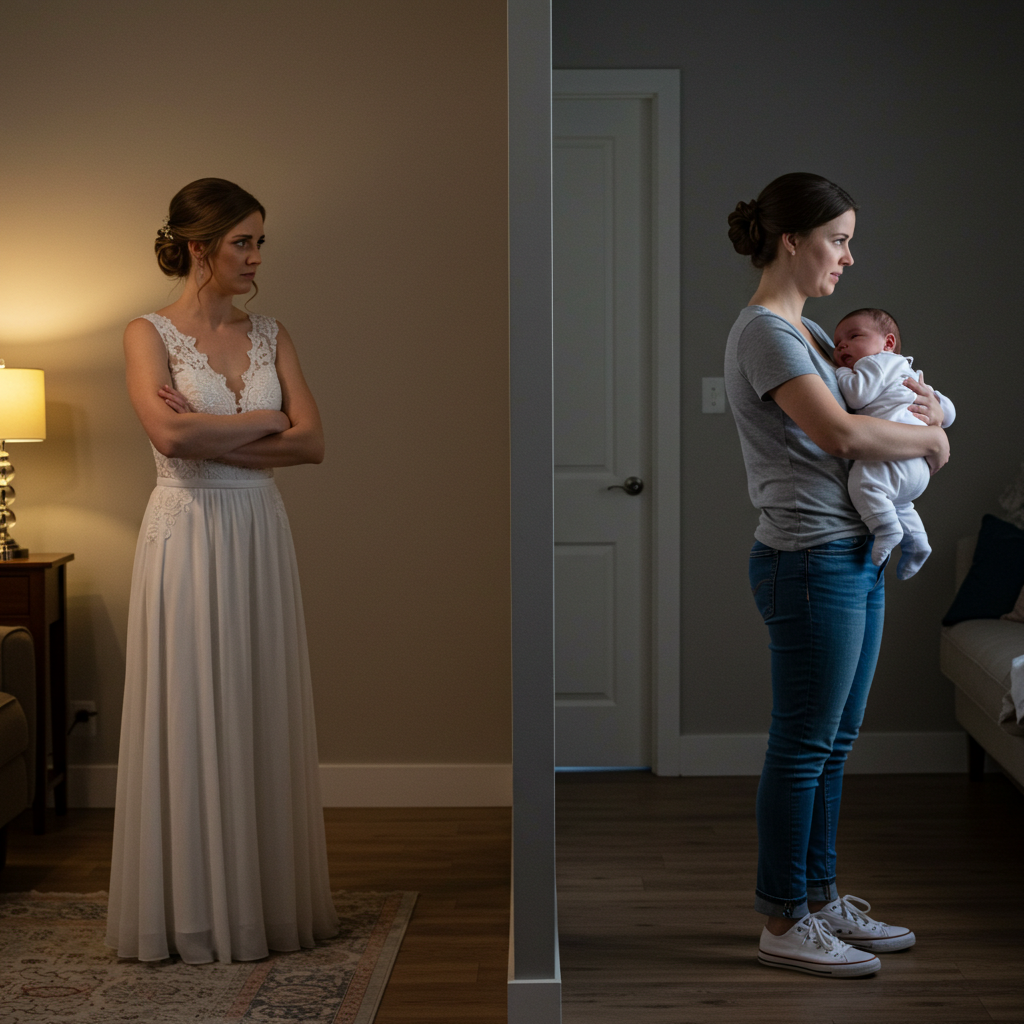
Sarah’s Perspective: A Special Day, Strict Rules
Weddings are expensive and stressful. Sarah envisioned an elegant, adult-only atmosphere where her guests could relax without worrying about kids crying or interrupting the ceremony. She wanted consistency: no exceptions means no resentment from other guests who had to hire babysitters.
From her point of view, Emily should have planned ahead and arranged childcare. To Sarah, this was a matter of respecting her wishes and supporting her once-in-a-lifetime event.
Emily’s Perspective: The Needs of a Newborn
Emily wasn’t trying to bend the rules for convenience. She was six weeks postpartum, recovering physically and emotionally. Her baby relied on her for nourishment and comfort every few hours. For many new moms, leaving a newborn with someone else simply isn’t feasible or healthy.
In Emily’s view, she was being clear and respectful by declining the invitation rather than showing up and ignoring the rules. She didn’t demand an exception—she just chose not to attend.
Reddit Reacts: Who’s in the Wrong?

Reddit’s AITAH community had strong opinions, and the majority sided with Emily.
“You are NTA,” one top comment read. “Six weeks postpartum is still recovery time. Your sister’s wedding is important, but so is your baby’s well-being.”
Another wrote, “If your sister can’t understand that a newborn is different from a toddler, that’s on her.”
Still, a minority felt Sarah had a point. “It’s her wedding,” one commenter said. “She set the rules, and you made your choice. No one’s the villain here.”
The Deeper Issues: Expectations in Families
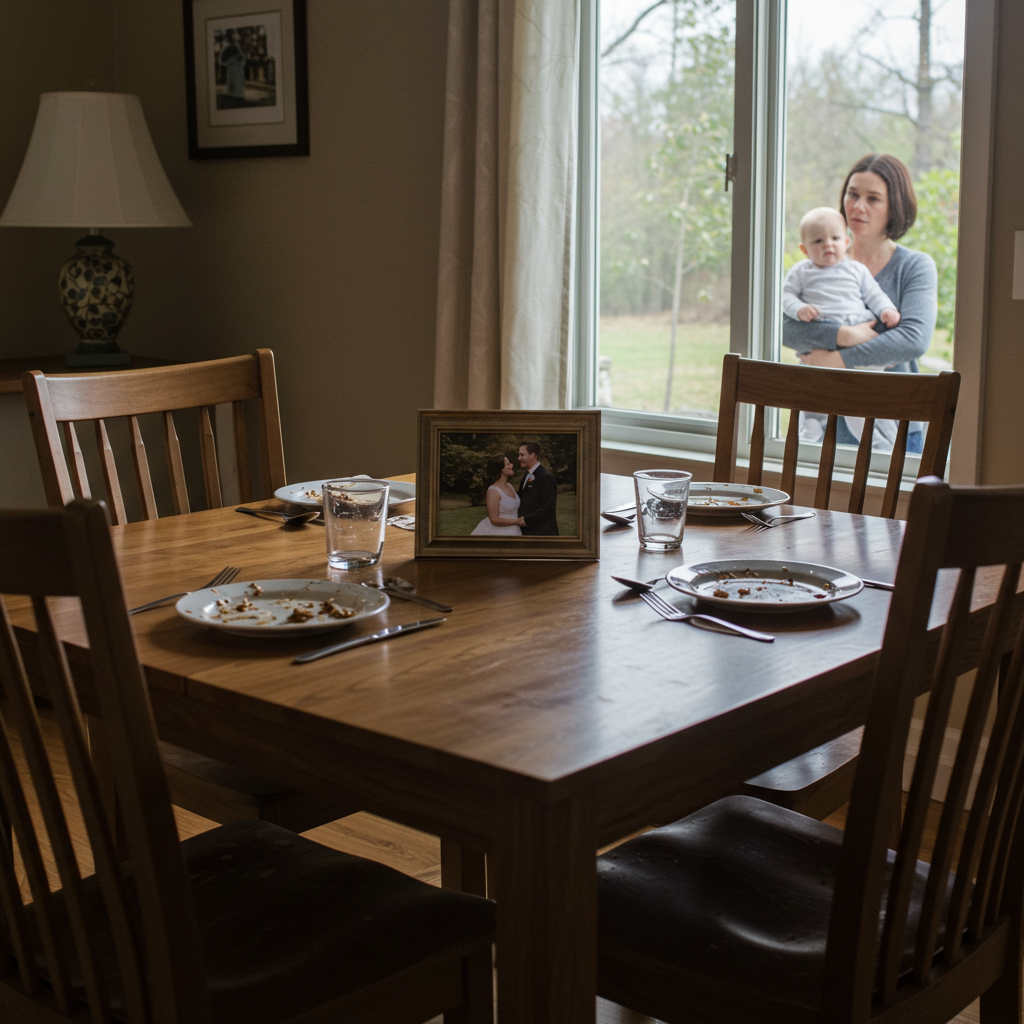
This scenario touches on larger questions about how we navigate family obligations after becoming parents:
-
How much should you sacrifice to be present for milestones?
-
When does a boundary become a slight?
-
Who decides what counts as an acceptable exception?
Sarah and Emily both believed they were acting reasonably. But clashing expectations—and the pressure to be “the perfect sister”—turned a simple decision into a family rift.
What Could Have Helped?

Clear Communication
Some commenters suggested Sarah and Emily could have had a calmer conversation about what was truly non-negotiable versus what could be adapted. Perhaps Emily could have attended only the ceremony or stayed briefly to show support.
Empathy on Both Sides
Understanding doesn’t mean agreement. Even if Sarah didn’t want babies at her wedding, she could have shown compassion for Emily’s situation rather than accusing her of selfishness.
Respect for Boundaries
Emily did not insist on special treatment. She declined the invitation rather than violate the rules. Ultimately, that’s a boundary—not a personal attack.
The Takeaway: Saying No Doesn’t Make You the Villain

This AITAH story is a powerful reminder that sometimes, saying no is the healthiest option. Parenthood reshapes priorities, and it’s okay to honor your needs without guilt.
You can love your family and still choose your child’s well-being over tradition. You can respect someone’s wishes and still step back if they don’t work for you. And you can decline an invitation without intending to hurt anyone.
